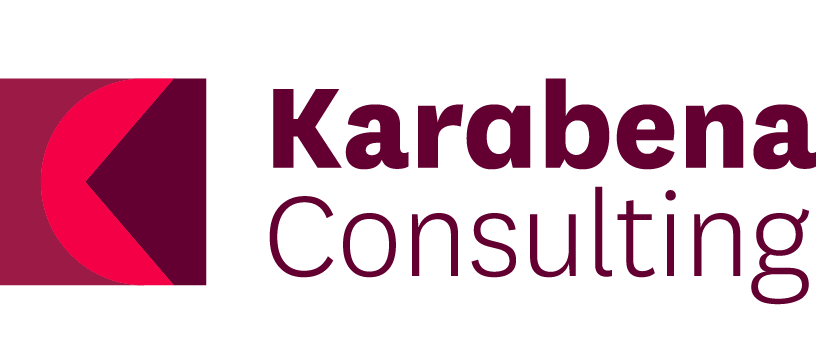Better Futures and Home Stretch Evaluation – First Nations Experience
The Centre for Evaluation and Research Evidence (CERE) and the Department of Families, Fairness and Housing (DFFH)
Who funded the project
The Better Futures and Home Stretch Programs, an initiative of DFFH, aim to provide structure, guidance, and support to young people transitioning from care services to adulthood.
The programs have been subject to a multi-stage evaluation since 2020. Stage 1 was completed in 2022; however, this did not include the perspective of Aboriginal Community Controlled Organisations (ACCOs) or Aboriginal young people. Therefore, in Stage 2, Karabena Consulting (Karabena) was engaged by the Centre for Evaluation and Research Evidence (CERE) and DFFH to undertake a nested evaluation focused on the early experiences of ACCOs and Aboriginal young people.
Karabena applied a formative evaluation approach, using qualitative data to explore the early impacts, enablers, and challenges to program implementation. ACCOs provided feedback about the main issues and themes to be evaluated, as well as the consultations question guides. To further promote the principles of self-determination, Karabena employed a peer researcher – an Aboriginal young person receiving Better Futures support – to conduct consultations with other Aboriginal young people.
The findings from consultations were thematically analysed and synthesised in an Evaluation Report: a separate, stand-alone resource, highlighting stories, findings, and recommendations with a particular emphasis on the experiences and early benefits for Aboriginal young people.
Summary
The main aim of the project was to work with ACCOs who provide Better Futures and Home Stretch to design and conduct a qualitative participatory process to contribute to the evaluation of the programs, by hearing from Aboriginal young people and their community.
Project Aims
To ensure the evaluation aligned with the Australian Evaluation Society’s Principles for Culturally Safe Evaluation, Karabena developed and maintained a log of culturally safe evaluation activities.
Karabena consulted with ACCOs during the planning phase to scope the main issues and themes requiring evaluation, and sought feedback on the consultation question guides.
Promoting the principle of self-determination, Karabena prioritised the voices of Aboriginal young people. This included employing a Peer Researcher – an Aboriginal young person with lived experience of Better Futures – to lead consultations with other Aboriginal young people. The Peer Researcher received training, ongoing mentoring, and remuneration for their involvement in the evaluation.
To achieve the objectives of the evaluation, the Peer Researcher and Karabena team members conducted interviews and focus groups with:
Aboriginal young people (1 in-care, 8 post-care),
ACCO Better Futures Teams (11),
Representatives from organisations involved in Program Design, Tools, and Resources (Brotherhood of St Laurence, Victorian Aboriginal Child and Community Agency [VACCA], and the Victorian Aboriginal Children and Young People’s Alliance [the Alliance]),
Other Better Futures Service Providers (Non-ACCO Better Futures practitioners who deliver the program to Aboriginal young people).
Initial findings were presented to CERE and ACCOs in a data sensemaking workshop. This informed the Key Findings and Recommendations included in the final evaluation report.
Methodologies
Peer Researcher Methodology
The main benefit of employing a peer researcher is that, through their shared experience, they created an environment of empathy, connection, and safety for participants. The data collected from Aboriginal young people was, undoubtedly, enriched by the Peer Researcher’s involvement and advanced self-determination. Furthermore, enhancements to the Better Futures program resulting from the evaluation design and implementation are informed directly by the perspective of Aboriginal young people. Through their experience in research, the Peer Researcher gained skills and knowledge that can lead to future education, training, and employment opportunities.
Unforeseen benefits of this methodology include connections formed between the Peer Researcher and other Aboriginal young people receiving Better Futures support, and the Peer Researcher facilitating a participant’s connection with a family member living in their community.
Testimonial from the Peer Researcher:
‘Being a part of the Better Futures program, and having gone through challenging circumstances myself, I jumped at the opportunities to be a peer researcher. I was able to not only share my story and feedback, but to also listen to and help others going through similar challenges, and create an opportunity for positive change. I believe it is very beneficial to have a peer researcher present as it’s more likely to gain realistic and fuller responses. It helps others be comfortable enough to share their truth, knowing that they’re in a safe space with someone that’s experienced something similar. After participating in this role, although something I’m interested in anyway, I will definitely be keeping a keener eye out for other opportunities like this. I have been able to use this as an opportunity for personal growth also, working on my skills when it come to the interview process and talking to different audiences, meeting and connecting with new people, as well as a family connection!’
Methodological outcomes
The key outputs from this project were:
An Evaluation Report,
An Evaluation Summary Document,
A Presentation to CERE, DFFH, ACCOs, and other key organisations involved in delivering Better Futures and Home Stretch to Aboriginal young people.
Outputs
The findings and recommendations of the report are under review by CERE and DFFH. It is anticipated that this these recommendations will inform a review of key programmatic elements such as:
Funding and resourcing structures and allocations,
ACCO-specific induction and training,
Processes and procedures (e.g. referral and reporting),
Tools and resources,
Program scope.
Project Outcomes
Better Futures and Home Stretch
Aboriginal young people
Aboriginal and Torres Strait Islander evaluation
Peer Researcher methodology
Aboriginal Community Controlled Organisations (ACCOs)
Self-determination in evaluation
Culturally safe evaluation
Transition from care
Out-of-home care
Victorian Department of Families, Fairness and Housing (DFFH)
Centre for Evaluation and Research Evidence (CERE)
